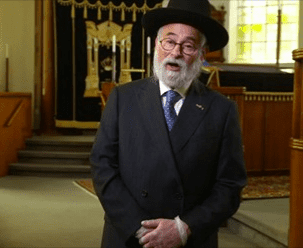UNESCO and the Organization for Security and Co-operation in Europe’s Office for Democratic Institutions and Human Rights (OSCE-ODIHR) are publishing new resources for teacher trainers, titled Addressing Anti-Semitism in Schools: Training Curricula. Launched online on 24 November (5pm CET), the publication responds to an alarming rise in anti-Semitism, which is threatening the security of Jewish communities and individuals around the world.
The publication reflects the view that education plays a crucial role in raising young people’s awareness of anti-Semitism and helps them resist the harmful messages of hate speech. In 2019 alone, anti-Semitic hate crimes increased by 13% in Germany and 14% in the United States, for example. In 2020, the COVID-19 pandemic spurred a new wave of anti-Semitic conspiracy theories, while studies in the United States and Europe show a marked increase in Holocaust denial and distortion, both on- and off-line.
Supporting educators in particular, UNESCO and the Organization for Security and Co-operation in Europe (OSCE) Office for Democratic Institutions and Human Rights (ODIHR) are publishing new resources for teacher trainers, titled ‘Addressing Anti-Semitism in Schools: Training Curricula’. The publication will be launched online on 24 November at 17.00 CET.
Recognizing that schools are not immune to messages and acts of hate, UNESCO and ODIHR’s new publication prepares teachers and school directors to resist anti-Semitism through education and to address it when it arises in an educational environment. Divided into four distinct volumes, the publication includes targeted curricula for trainers of teachers in primary, secondary and vocational education, as well as school directors. The resources were developed with the support of the University College London Centre for Holocaust Education, as part of ODIHR’s Turning Words into Action to Address anti-Semitism project and within the framework of UNESCO’s programme on Global Citizenship Education.
The curricula follow a human rights-based approach and provide pedagogical knowledge and concrete activities, designed to strengthening learners’ critical thinking, understanding, and rejection, of anti-Semitism, prejudice and discrimination. Each volume includes a comprehensive list of good practices as well as examples of scenarios and methodological suggestions. Adding to the publication, the USC Shoah Foundation UNESCO Chair on Genocide Education is developing a website that will link the curricula to existing online teaching resources.
The new publication is based on UNESCO and ODIHR’s 2018 guidelines for policymakers on Addressing anti-Semitism through Education. In 2019, the guidelines informed a series of capacity-building workshops, which reached policymakers from more than 60 countries.
The online launch on 24 November will feature statements by Katarzyna Gardapkhadze, Officer-in-Charge of ODIHR, Stefania Giannini, UNESCO Assistant Director General for Education, and German Ambassador Michaela Küchler, who holds the International Holocaust Remembrance Alliance Chair. A panel discussion will focus on The role of education in addressing antisemitism with the participation of Maram Stern, Executive Vice President of the World Jewish Congress, Sharon Nazarian, Senior Vice President of International Affairs at the Anti-Defamation League (ADL), Stuart Foster, Executive Director of the University College London Centre for Holocaust Education. It will be moderated by Stephen Smith, Executive Director of the USC Shoah Foundation and UNESCO Chair for Genocide Education. The framework curricula will be introduced by Ruth-Anne Lenga, Programme Director, and Arthur Chapman, Associate Professor in History Education of the University College London Centre for Holocaust Education.
The article was published in MirageNews















